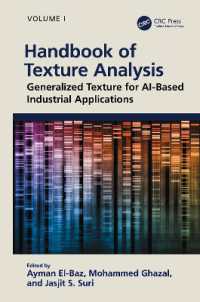Full Description
This book brings together ongoing debates about personalised learning, creativity and ICT in education, with a cross-curricular focus, and establishes a principled framework for cross-curricular teaching and learning in Modern Foreign Languages. It identifies a range of key issues and constructs a research-based pedagogy with practical steps for students and teachers as they consider how cross-curricular approaches can be implemented.Key features include:Theoretical examination of key issuesAssessment of the strengths and weaknesses of different curricular modelsClear principles for effective assessmentA wide range of case studiesSummaries of key research linked to suggestions for further readingProfessional development activities to promote cross-curricular dialogueThis timely textbook is essential reading for all students on Initial Teacher Training courses and practising teachers looking to holistically introduce cross-curricular themes and practices in foreign language teaching.
Contents
Introduction 1. Language and literacy development 2. Language learning and the humanities 3. Language learning and the arts 4. Language learning and the sciences 5. Language learning and the global dimension 6. Language learning and new technologies 7. Language learning and work-related learning 8. Planning and assessing language learning in a cross-curricular approach 9. Future directions in language learning and teaching







